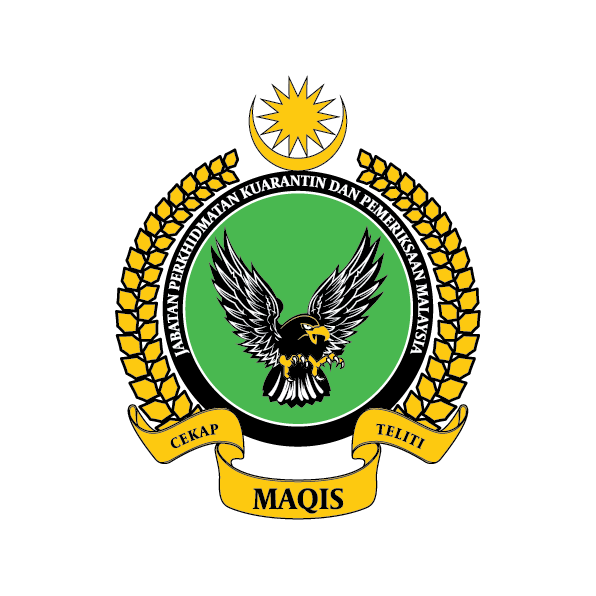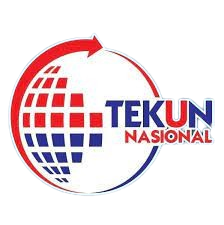Introduction
| Fumigation is a treatment method that is widely used in most countries in eliminating pests and diseases of crops. However, fumigation methods especially those using methyl bromide gas (CH3Br) are known to have a negative impact on the environment. Fumigation is still considered an appropriate method to deal with pests and diseases of crops. The Montreal protocol still allows the use of methyl bromide in fumigation activities, especially in pre-shipment and quarantine treatments.
Many countries require certain commodities to be smuggled before exporting. As proof and confirmation that the commodities have gone through the fumigation process, the importing countries require the fumigation company or the approval body of a country to issue a fumigation certificate confirming that the treatment has been carried out on the commodity. Ineffective fumes will have a negative impact on export trade and the integrity of Malaysia's agricultural products is questioned internationally. Malaysia is committed to addressing the issue of ineffective quarantine fumes for export purposes. To date, Malaysia has established a Fumigation Accreditation Scheme (known as the Scheme) for fumigation companies conducting fumigation treatment for export in ensuring that all fumigation requirements and conditions are met in line with the world-class standards outlined in the Australian Methyl Bromide Fumigation Standard (referred to as Standard) . |
| List of Certified Fueling Companies |
Purpose
| This article aims to explain the guidelines to be followed by fumigation companies in conducting quarantine fumigation for export commodities using methyl bromide gas under the Scheme |
Scope
| This article is limited to commercial treatment, under quarantine conditions with methyl bromide gas fumigation only. The types of trading are as follows: |
|
Registration
| Registration Protocol |
| To be accredited into the Scheme, a fumigation company must have a valid licensed fumigator. Companies with licensed fumigators will be registered with a unique ID number. Companies are also required to record the number in each treatment certificate that complies with the requirements of the Department of Agriculture.
The Department of Agriculture is the sole registrar of fumigation companies as well as licensed fumigators. Accreditation will be given for two (2) years. Accumulated fumigators are required to apply for accreditation renewal within three (3) months before the expiry date. The Department of Agriculture will conduct an audit for the reforms based on the application. If there are any changes involving a fumigation company and a licensed fumigator, it must be notified to the Department of Agriculture in writing. If the integrity of the fumigation treatment cannot be maintained, the Department of Agriculture reserves the right to revoke the accreditation |
Responsibility
| The fumigation company is responsible for: |
|
Audit System
| The audit system as outlined below is designed to ensure the performance of licensed fumigation and fumigator companies in compliance with all Scheme rules and procedures contained in the Scheme. | |
|
Preliminary Audit
|
Renewal Audit
| This audit was conducted by an officer of the Department of Agriculture within 12 months after the company was contacted and an appointment regarding the date and time of the audit was made. |
Sudden Audit
| Audit without notification or notice from the Department of Agriculture conducted every three (3) months. |
Re-Audit
| This audit is conducted by the Department of Agriculture after a period of suspension is imposed on companies that fail to comply with the terms and conditions of the Scheme or Standard.
If during this audit the licensed company or fumigator fails to show that the terms and conditions of the Scheme and Standards are complied with, the suspension will continue and the company will need to write a show cause letter if it wants to remain in the Scheme. |
Audit Activities
| Audit criteria are divided into three (3) levels of non-compliance, namely minor, major and critical. Critical non-compliance will result in suspension from the scheme. Major and minor, on the other hand, require the company to follow and comply with corrective measures and be audited.
The Department of Agriculture will notify the licensed fumigator and fumigator company in writing of any non-compliance and advise the company and fumigator until the Scheme and Standard rules are complied with. A notice of corrective measures to be taken will be issued to the company and the fumigator. As a guide, the definition of non-compliance is as follows: |
|
| a) | MINOR Non-compliance: |
|
|
| b) | MAJOR Non-compliance: |
|
|
| c) | CRITICAL non-compliance: |
|
|
Auditing - Administrative Aspects
|
Read
|
Organizations and Employees
| The company should have an organizational chart that clearly describes the duties and responsibilities of employees. Basically, the organization chart should start with the company manager (or equivalent) who has the authority and resources in carrying out his duties, the technical director (or equivalent) who is responsible for all the technical activities of the fumigation.
The company also needs to have sufficient employees in carrying out its activities. For example, for each fumigation activity at least two employees are required including a licensed fumigator. Company management and fumigation license holders should be aware of: |
|
Technical Workers
| The Technical Manager (or equivalent) must have the following qualifications: |
|
Technical Conditions
| Licensed fumigators need to undergo accreditation training and be evaluated as competent. The following conditions must be met: | |
|
|
Equipment and Supplies
| Enclosure |
|
| Gas Supply |
|
| Monitor Gas Concentration |
|
Record keeping
| Fumigation companies are required to ensure that all records and documents related to fumigation work, equipment and monitoring as well as stock purchases are kept in an orderly manner and constantly updated. The records are as follows: |
|
| Records relevant to fumigation treatment should be kept neat and orderly. All fumigation activities should be recorded for reference and audit purposes. Records are as follows: |
|
Violation and Suspension Protocol
| Licensed fumigation and fumigator companies that violate the terms and conditions of fumigation as well as gadal in carrying out treatment will be suspended immediately. A show cause letter must be submitted before a re-audit can be conducted.
If during any audit there is one or more critical non-compliance, more than two major offenses and four or more minor offenses, the company and fumigator will be suspended from the scheme. A re-audit should be conducted and, if necessary, retrained. If during the audit, fewer than four minor non-compliances are found, the licensed company and fumigator must comply with the recommended corrective measures and be audited again within 6 weeks to ensure that corrective measures are complied with. If during the follow-up audit there is further non-compliance, the company needs to be re-audited and if it still fails to be suspended from the Scheme and within 6 months if the company shows compliance and competence with the scheme, a re-entry audit will be conducted. Re-training is also recommended. Fumigation company accreditation will be revoked if: |
|
Appeal Protocol
| If there is a situation where non-compliance occurs due to reasonable and acceptable reasons, an appeal may be submitted.
The purpose of this appeal protocol is to provide an appeal method by licensed companies and fumigators in the event of such a situation. |
| Appeal Process |
| The appeal must be submitted in writing by a fumigation company or a licensed fumigator.
The letter of appeal must clearly and honestly explain the reasons and reasons for the appeal. The Department of Agriculture will review the appeal case within 5 working days and will make a written decision on the appeal within 15 working days from the date of receipt of the appeal. |
Questions and Relationships
| Any inquiries, applications or appeals can be submitted to: |
| Secretariat of the Malaysian Fumigation Certification Scheme (MAFAS) Legal Unit Enforcement Section of the Plant Biosecurity Division of the Department of Agriculture, Wisma Tani Jalan Sultan Salahuddin, 50632 Kuala Lumpur. |
| No. Tel: 03-2030 1400/1412 No. Fax: 03-2691 3530 |









